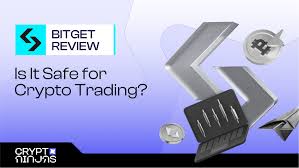Crypto Wallets:

Introduction
In the fast-evolving world of cryptocurrency, securing your digital assets is more important than ever. Whether you’re a beginner or an experienced investor, choosing the right crypto wallet can make or break your experience. With hundreds of options available—hardware wallets, software wallets, mobile apps, and browser extensions—how do you pick the one that keeps your assets safe while providing ease of use?
In this comprehensive guide, we’ll explore what crypto wallets are, how they work, the different types, and most importantly, how to choose the best crypto wallet in 2025. This blog is optimized with the latest SEO techniques to help you find the information you need, fast.
Table of Contents
1. What Is a Crypto Wallet?
2. How Do Crypto Wallets Work?
3. Types of Crypto Wallets
Hardware Wallets
Software Wallets
Mobile Wallets
Web WalletsPaper Wallets
4. Hot Wallets vs. Cold Wallets
5. Top 10 Best Crypto Wallets in 2025
6. How to Choose the Right Wallet for You
7. Security Tips for Using Crypto Wallets
8. Common Mistakes to Avoid
9. Frequently Asked Questions (FAQ)
10. Final Thoughts
- What Is a Crypto Wallet?
A crypto wallet is a tool that allows you to store and manage your digital assets like Bitcoin, Ethereum, and other cryptocurrencies. Unlike traditional wallets that hold physical cash, crypto wallets store private keys—cryptographic keys that give you access to your crypto.
Without a secure wallet, your cryptocurrency is vulnerable to hacks, theft, or loss.
- How Do Crypto Wallets Work?
At the core of every crypto wallet are two keys:
Public Key: Your wallet address, which others use to send you crypto.
Private Key: A secret key that proves ownership and authorizes transactions.
When you initiate a transaction, your wallet uses your private key to sign it. This cryptographic signature proves that the transaction came from you. Therefore, keeping your private key secure is essential.
- Types of Crypto Wallets
Understanding the different types of wallets helps you decide which is best for your needs.
a. Hardware Wallets
Best for security
Hardware wallets are physical devices that store your private keys offline. They’re considered the most secure option, especially for large crypto holdings.
Top Brands in 2025:
Ledger Nano X
Trezor Model T
SafePal S1
b. Software Wallets
Best for everyday use
Software wallets are applications installed on your desktop or mobile device. They’re easier to use but more vulnerable to malware.
Popular Choices:
Exodus
Atomic Wallet
Electrum
c. Mobile Wallets
Best for convenience
Mobile wallets are apps designed for iOS and Android. They’re perfect for quick transactions on the go.
Top Mobile Wallets:
Trust Wallet
MetaMask Mobile
Coinomi
d. Web Wallets
Best for quick access
Web wallets run in your browser and are typically hosted by third parties (e.g., exchanges). While convenient, they’re often targeted by hackers.
Popular Web Wallets:
Blockchain.com Wallet
Binance Wallet
Coinbase Wallet
e. Paper Wallets
Best for long-term cold storage
A paper wallet is a printed document containing your public and private keys. While it’s offline, losing it means losing your funds forever.
4. Hot Wallets vs. Cold Wallets
Understanding the distinction between hot and cold wallets is crucial for managing your risk.
Hot Wallets: Connected to the internet (software, web, and mobile wallets).
Pros:
Convenient and user-friendly.
Cons:
Vulnerable to hacking.
Cold Wallets:
Offline wallets (hardware and paper wallets).
Pros:
Extremely secure.
Cons:
Less convenient for frequent transactions.
Pro Tip:
Use a combination. Store long-term holdings in a cold wallet and small amounts in a hot wallet for daily use.
5. Top 10 Best Crypto Wallets in 2025
Here are the top-performing wallets this year based on security, usability, and support for multiple coins:
6. How to Choose the Right Wallet for You
Ask yourself the following:
How much crypto are you storing?
Large sums = hardware wallet.
How often will you trade?
Frequent users = mobile or web wallets.
Which cryptocurrencies do you use?
Ensure the wallet supports them.
Do you need DeFi or NFT features?
Choose wallets like MetaMask or Trust Wallet.
7. Security Tips for Using Crypto Wallets
1. Never share your private key or seed phrase.
2. Enable two-factor authentication (2FA).
3. Use hardware wallets for large amounts.
4. Regularly update wallet software.
5. Back up your wallet and store recovery phrases offline.
6. Beware of phishing attacks. Always verify URLs.
7.Common Mistakes to AvoidLosing your seed phrase:
You won’t recover your wallet without it.Using exchanges as wallets:
Exchanges can be hacked.
Downloading fake wallet apps:
Always verify the source.
Failing to update software:
Vulnerabilities can be exploited.
Ignoring transaction fees:
Some wallets have high fees or limited customization.
8. Frequently Asked Questions (FAQ)
Q: What is the safest crypto wallet in 2025?
A: Hardware wallets like Ledger Nano X and Trezor Model T offer top-tier security.
Q: Can I store multiple cryptocurrencies in one wallet?
A: Yes, wallets like Trust Wallet, Atomic Wallet, and Ledger support thousands of assets.
Q: Are crypto wallets free?
A: Most software and mobile wallets are free. Hardware wallets typically cost between $50–$200.
Q: What happens if I lose my wallet device?
A: As long as you have your recovery seed phrase, you can restore your funds on another device.
Q: Do I need internet to use a wallet?
A: Hot wallets require internet. Cold wallets like hardware devices can sign transactions offline.
9.Final Thoughts
Choosing the best crypto wallet in 2025 comes down to balancing security, accessibility, and functionality. If you’re holding a significant amount of digital assets, investing in a hardware wallet is non-negotiable.
For beginners or casual traders, a reputable mobile or desktop wallet will suffice—just be cautious and proactive about security.As the crypto landscape evolves, so should your wallet strategy. Stay informed, be vigilant, and always put the safety of your assets first.
relatehttps://shiizu.com/d
Crypto Wallet
Crypto Wallet



